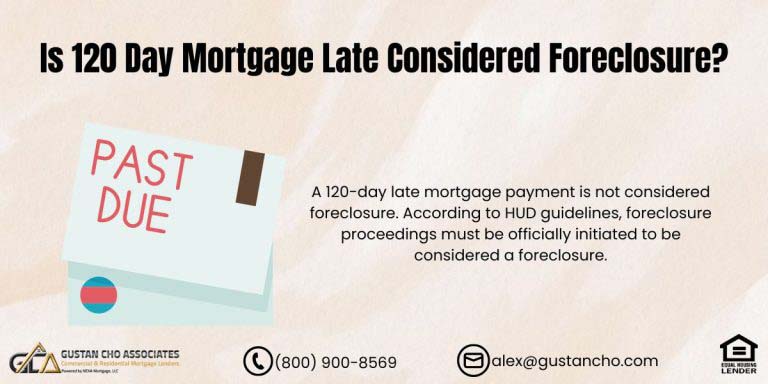This guide covers buying house in community property states. Buying house in community property states can be tricky on certain loan programs. Thousands of Americans live in a community property state and may not understand how this can impact buying a home until they apply for a mortgage. In community property states, each spouse has equal ownership of the property. This blog will detail what it means to be a community property state. We will also discuss how buying house in community property states affects your mortgage loan approval. We will also cover how to apply for a mortgage buying a house in community property states with Gustan Cho Associates.
What is a Community Property State?
Community property states follow a legal framework where most property acquired during a marriage is owned jointly by both spouses, regardless of who purchased it or whose name is on the title. Understanding this is crucial when buying house in community property states.
Here are the key points and purposes:
Equitable Distribution
Community property laws ensure a fair and equitable distribution of property upon divorce or the death of a spouse. This is particularly important when buying a house in community property states, as it reflects the view that marriage is an economic partnership.
Simplified Estate Planning
These laws can simplify estate planning and probate processes. In community property states, if one spouse passes away, the surviving spouse automatically inherits half of the community property, simplifying asset transfer when buying a house.
Protection of Spouses
Community property laws protect the financial interests of the spouse, who may not have been the primary breadwinner. In community property states, financial and non-financial contributions, such as homemaking and childcare, are acknowledged when purchasing a house.
Debt Liability
Both spouses share liability for debts incurred during the marriage. This aspect is crucial when buying a house in community property states, as it ensures creditors can seek repayment from either spouse.
Transparency and Trust
Community property systems promote financial transparency and trust between spouses. When buying a house in community property states, both have equal ownership and access to marital assets, fostering a sense of shared responsibility and trust.
The following states abide by community property laws: Arizona, California, Idaho, Louisiana, Nevada, New Mexico, Texas, Washington, and Wisconsin, and in Alaska, couples can participate.
Ready to Buy a Home in a Community Property State? We Can Help You Navigate the Process!
Contact us today to learn how these laws impact home buying and get started with your mortgage application.
Asset Distribution In Community Property States
An asset acquired before the marriage is considered “separate property” and is solely owned by that person. If so chosen, a spouse can transfer the title of their separate property into dual ownership as community property. For example, the money in a bank account before marriage can become community property if you add your spouse to the bank account as an account holder.
Within a community property state, separate property can include property owned by one spouse before marriage, property given to just one spouse during the marriage, or property inherited by just one spouse.
Community property will always include money either spouse earned during the marriage. However, things earned before the marriage will belong to the spouse who had it before marriage. Assets and money earned during marriage will be joint property.
Negatives Buying House In Community Property States
During a healthy marriage, community property is not a big deal. It can be an issue during divorce and property distribution upon death. When a spouse passes before their partner, the community property is automatically deeded to the surviving spouse, avoiding court proceedings. Any community property is divided evenly 50% / 50% between each spouse during divorce or separation.
What States Are Community Property States
What states practice community property?
- Wisconsin
- New Mexico
- Nevada
- Idaho
- Washington
- Texas
- California
- Arizona
- Louisiana
- Alaska (when requested)
How does living in a community property state affect your mortgage qualifications?
How To Get Approved For a Mortgage With High DTI Buying House In Community Property States
If you are legally married within a community property state, you must know a few key points before purchasing a property. Residing within a community property state will require credit verification for any non-borrowing spouse on a government-backed mortgage.
A government-back mortgage includes USDA, FHA, and VA mortgage loans—these government-backed mortgages hedge risk by factoring in non-borrowing spouses’ debt when evaluating mortgage qualifications.
In short, your debts will count against the overall debt-to-income ratio even if you are not on a mortgage loan. If you are not on a mortgage loan, your income will not count toward the debt-to-income ratio. The thought process behind adding spousal debts is to negate any future financial woes, such as a judgment being placed against the property for the non-borrowing spouse.
Debts Included In DTI Buying House In Community Property States
ALL Non-borrowing spousal debts are included in the debt-to-income ratio. This includes any mortgage debt, credit card debt, personal loans, auto loans, collection accounts (non-medical), and judgments. Any items reporting to credit and any judgments / public records (tax liens).
Credit Scores Used By Mortgage Lenders
It is important to understand that the credit score of the non-borrowing spouse does not affect mortgage qualifications. The credit score is not taking into account, the minimum payments due are taken into account. So even if the non-borrowing spouse has a horrible credit profile, you may still qualify for the mortgage.
Buying House in Community Property States With Non-Borrowing Spouse
It is also important to understand that the non-borrowing spouse’s credit profile will NOT be considered for a conventional mortgage. That is the only workaround if your debt-to-income ratio does not work when adding spousal debt on a government-backed loan. Gustan Cho Associates are experts in all FANNIE MAE and FREDDIE MAC mortgages. We offer all of their specialty loan programs and do not have any additional LENDER OVERLAYS.
Qualifying For a Mortgage Buying House in Community Property States
How to apply for a mortgage with Gustan Cho Associates: First, gather the following documentation (for all persons on the loan application):
- Last 60 Days Bank Statements – to source down payment
- Last 30 Days Pay Stubs
- Last Two Years W2’S
- Driver’s License
- Last Two Years’ Tax Returns (not always required)
Buying a Home in a Community Property State? Let Us Help You Understand the Guidelines!
Reach out now to learn how these laws affect your loan and get the right mortgage for your needs.
What is the Difference Between Common Law and Community Property States?
The primary difference between common law and community property states lies in how they handle the ownership and division of property acquired during a marriage. In states with community property laws, most property obtained during the marriage, such as purchasing a home in these states, is viewed as jointly owned by both spouses, irrespective of the purchaser or the name on the title.
Upon divorce, this property is typically divided equally (50/50) between the spouses. Additionally, both spouses share liability for debts incurred during the marriage. Upon the death of one spouse, the surviving spouse automatically owns half of the community property, which can simplify the transfer of assets.
During marriage, property acquired by one spouse is typically considered to be owned exclusively by that spouse in common law states unless it is jointly titled. When buying a house in common law states, the property’s title becomes crucial as it determines ownership.
Upon divorce, the property is divided equitably but not equally, with courts considering factors like each spouse’s financial and non-financial contributions, earning capacity, and needs. Debt liability in common law states typically falls on the individual who incurred the debt unless it was co-signed or jointly incurred. Upon the death of one spouse, property distribution follows the will or state intestacy laws, often requiring probate.
Most states in the U.S. follow common law property rules. Understanding these differences is important for planning your finances effectively, especially when buying a house in either state.
Once you have gathered your income and asset documentation, contact Gustan Cho Associates at 800-900-8569 or text us for a faster response. Or email us at gcho@gustancho.com. After your one-on-one mortgage consultation with Alex, you will receive an application link to complete online.
This will permit your loan officer to verify your credit profile and start your pre-approval. Of course, if you are located in a community property state and using a USDA, VA, or FHA mortgage, we will need your spouse’s information and pull their credit. “Community property” may sound simple, but there are still loan officers out there who do not understand the concept. Gustan Cho Associates pride itself on being current on all mortgage guidelines.
FAQs: Buying House In Community Property States
- 1. What is a community property state? A community property state is one where most property acquired during the marriage is considered jointly owned by both spouses, regardless of who purchased it or whose name is on the title. This affects how property is divided upon divorce or death.
- 2. How does community property affect buying a house? When buying a house in a community property state, both spouses automatically own the property equally. This means that both have equal rights and responsibilities regarding the property, and it will be divided equally if the marriage ends.
- 3. What are the advantages of community property laws when buying a house? Community property laws simplify estate planning and probate processes, ensure equitable distribution of property upon divorce, and protect the financial interests of the spouse, who may not be the primary breadwinner.
- 4. How do community property laws impact debt liability when buying a house? In community property states, spouses share liability for debts incurred during the marriage, including those related to buying a house. This means creditors can seek repayment from either spouse.
- 5. What states are considered community property states? The states that follow community property laws are Arizona, California, Idaho, Louisiana, Nevada, New Mexico, Texas, Washington, and Wisconsin. Couples in Alaska have the option to choose community property status.
- 6. How does buying a house in community property states affect mortgage qualifications? When buying a house in community property states, government-backed mortgages (USDA, FHA, VA) require credit verification for any non-borrowing spouse. Debts of the non-borrowing spouse are included in the debt-to-income ratio, which can impact mortgage approval.
- 7. What types of debts are included in the debt-to-income ratio for mortgage approval in community property states? The debt-to-income ratio includes all debts of the non-borrowing spouse, such as mortgage debt, credit card debt, personal loans, auto loans, collection accounts (non-medical), and judgments.
- 8. Does the credit score of the non-borrowing spouse affect mortgage qualifications? No, the credit score of the non-borrowing spouse does not affect mortgage qualifications. Only their debts are considered in the debt-to-income ratio.
- 9. What are the negatives of buying a house in community property states? Community property can complicate divorce proceedings and property distribution upon death. In a divorce, community property is typically divided equally, often resulting in conflicts. When one spouse passes away, the surviving spouse automatically receives half of the community property.
- 10. How can Gustan Cho Associates help buy a house in community property states? Gustan Cho Associates specializes in mortgage loans in community property states. They can lead you through the procedure, guarantee compliance with community property regulations, and assist with government-supported mortgages that necessitate the assessment of debts of a non-borrowing spouse.
If you have any questions about Buying House In Community Property States or you need to qualify for loans with a lender with no overlays, please contact us at 800-900-8569. Text us for a faster response. Or email us at alex@gustancho.com. The team at Gustan Cho Associates is available 7 days a week, on evenings, weekends, and holidays.
This blog about Buying House In Community Property States was updated on June 25th, 2024.
Buying a Home in a Community Property State? We’ll Help You Understand the Process!
Contact us now to learn more and get pre-approved for your mortgage.










